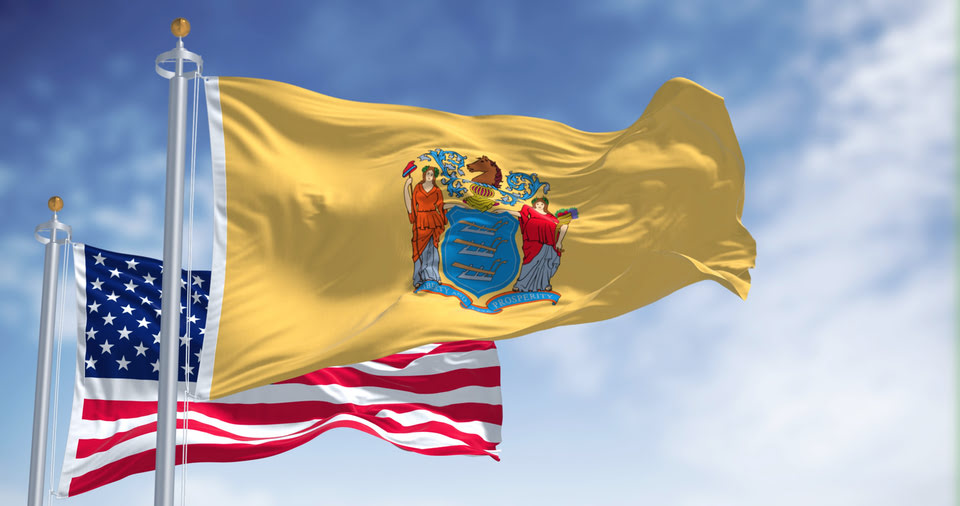
The Ban Isn’t Law Yet, But Everyone’s Leaving Anyway
New Jersey lawmakers approved Assembly Bill A5447 on June 30, passing it by a wide margin, 69‑10‑1 in the Assembly and 34‑5 in the Senate.
The bill defines illegal gambling as any game where players pay an entry fee to win prizes, effectively shutting down dual‑currency sweepstakes casinos like Chumba, LuckyLand Slots, and Global Poker.
Governor Phil Murphy hasn’t signed the bill yet, but he doesn’t have to, because under state law, A5447 will automatically become law on August 14 if he doesn’t sign it before then. Knowing the ban is inevitable, operators are choosing to leave now rather than risk being caught in violation once the law takes effect.
Who’s Leaving and When?
VGW, the company behind Chumba Casino, LuckyLand Slots, and Global Poker, notified New Jersey players that it will begin phasing out Sweeps Coin play starting July 29.
Here’s VGW’s timeline for New Jersey users:
- July 29 – No more earning Sweeps Coins from log‑ins, promos, or Gold Coin purchases.
- August 26 – Sweeps Coins can no longer be used for gameplay.
- September 24 – Final day to redeem Sweeps Coins. After that, only Gold Coin “social” play remains.
VGW is far from the only one heading for the exit. Funzpoints, Spree, Clubs Casino, Legendz, Baba Casino, Modo.us, Moonspin.us, Pulsz Casino/Bingo, and McLuck have already pulled the plug in New Jersey. Many of them phased out well before the bill even reached the governor’s desk.
Why This Matters
A5447 isn’t some minor rule change, it’s a full‑blown ban with real consequences.
Any operator caught running a sweepstakes casino in New Jersey could face fines of up to $250,000 per day, enforced by the state’s Division of Consumer Affairs and Gaming Enforcement.
Once finalized, New Jersey will become the sixth state to outlaw sweepstakes casinos by statute, joining Montana, Connecticut, Nevada, and New York, while Louisiana has effectively banned them through enforcement actions.
It’s a clear signal that states are done playing whack‑a‑mole with unlicensed operators, they’re pulling the plug entirely.
How Operators Are Responding
VGW is at least giving players a runway to cash out. Its three‑step exit strategy gives users nearly two months to spend or redeem Sweeps Coins before the September 24 cutoff.
But other operators aren’t waiting, they’ve executed instant shutdowns, cutting off both Sweeps and Gold Coin play at once.
The exception may be High 5 Casino, which announced plans to exit earlier this year but recently removed New Jersey from its restricted list. After settling a license suspension issue in Connecticut, High 5 may be rethinking its exit strategy, even as it faces its own class‑action lawsuit in the Garden State.
Not Everyone Agrees With the Ban
The Social and Promotional Games Association (SPGA) blasted A5447 as a “rushed and overly broad” ban, warning it could unintentionally sweep up legitimate promotional contests run by retailers and media companies.
The World Poker Tour (WPT) also pushed back, noting that its ClubWPT sweepstakes poker site has operated legally in New Jersey for 15 years without issue. WPT executives argue the bill unfairly lumps long‑standing promotional sweepstakes in with casino‑style operators.
What New Jersey Players Should Do
If you’ve got Sweeps Coins left, redeem them as soon as possible. Under VGW’s schedule, September 24 is the last day to cash out.
Gold Coin “social play” will continue indefinitely, but those coins can’t be redeemed for cash or prizes.
If balances are lost after the cutoff, players could consider filing complaints or claims under state consumer protection laws, though success would depend on how the ban is enforced.
The Bigger Picture
New Jersey’s rapid legislative push sends a clear signal, that states don’t need to spend years tied up in regulatory battles. They can simply pass a law and shut these platforms down.
Other states are taking notes. California’s AB 831, which closely mirrors New Jersey’s bill, is already advancing through the legislature, while Maryland and New York are debating similar measures.
Add to that the 49 lawsuits already filed across the country and the fact that major operators like VGW, McLuck, and Stake.us are retreating from key markets, and it’s clear that the sweepstakes casino model is under fire from every angle including courts, regulators, and now lawmakers.
Bottom line: New Jersey isn’t waiting for drawn‑out enforcement battles, it’s rewriting the rulebook entirely. For sweepstakes casinos, that approach might soon become the new normal.
